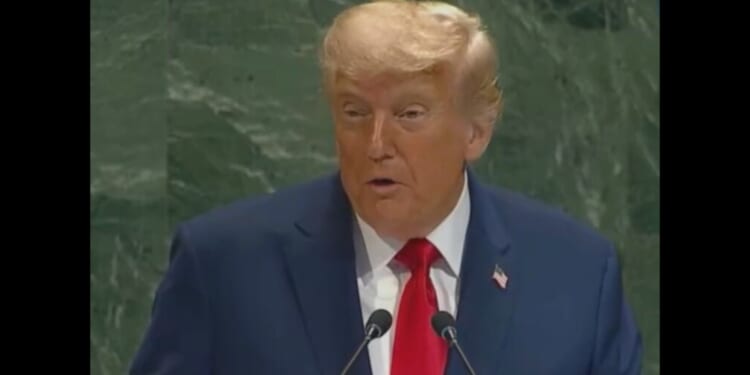Morgan Phillips writes for FoxNews.com about a positive development at the United Nations.
After a U.S.-led campaign, the United Nations has postponed a vote on a proposal to impose the world’s first global carbon tax on shipping, delaying the decision by one year.
The rule was expected to come up for a vote this week as part of the U.N. International Maritime Organization’s (IMO) “Net-Zero Framework.” But a majority of member nations voted to defer it after failing to reach consensus amid U.S. opposition.
Backed by the European Union and Brazil, the plan seeks to raise billions from carriers that exceed new emissions limits, channeling the revenue toward climate adaptation and clean-fuel projects in developing nations.
Washington and Riyadh led the opposition. Saudi Arabia introduced a motion Friday to delay discussions for one year, which passed with 57 countries in favor and 49 opposed.
The Trump administration came out forcefully against the measure this week, calling it an “unconstitutional global tax” that would drive up energy and consumer prices. In a series of statements, President Donald Trump, Secretary of State Marco Rubio, and U.S. ambassador to the U.N. Mike Waltz vowed that the United States would vote a “hard no” when delegates meet in London on Friday and urged allies to do the same.
“I am outraged that the International Maritime Organization is voting in London this week to pass a global Carbon Tax,” Trump wrote on Truth Social. “The United States will NOT stand for this Global Green New Scam Tax on Shipping, and will not adhere to it in any way, shape, or form. We will not tolerate increased prices on American Consumers OR the creation of a Green New Scam Bureaucracy to spend YOUR money on their Green dreams. Stand with the United States, and vote NO in London tomorrow!”
Administration officials argue the framework would give unelected international bureaucrats the power to tax U.S. companies and consumers while doing little to cut global emissions.











